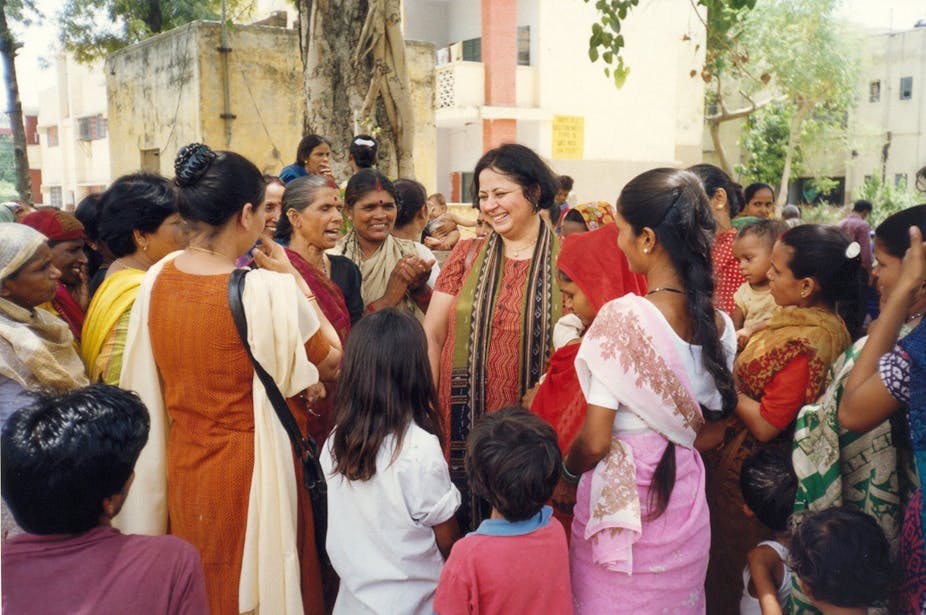Watch the video of public health professor Rob Moodie interviewing Dr Kiran Martin below.
Kiran Martin is the founder of Asha, a community health and development society that works with over 500,000 people from 50 slum colonies in New Delhi. I spoke to Martin about her work when she visited Melbourne recently.
I first met Kiran Martin in 1992, just four years after she had started her groundbreaking work. I remember being incredibly impressed at the time by her energy, compassion and clarity of purpose.
At the time, her enthusiasm and skills were keenly focused on empowering the women in the slums so they could take control of their lives and the lives of their families.
Now, 21 years later, Asha’s extraordinary work has expanded to cover more than 10% of the city’s slum dwellers.
The work of Asha is a powerful example of how acting on the “social determinants of health” can change society. The social determinants of health are the conditions in which people are born, grow, live, work, and age; shaped by the distribution of money, power and resources at the global, national and local levels.
As she describes in the interview above, Kiran Martin started by responding to the felt needs of people by treating their children during a cholera epidemic. She then realised she could help the women to take much greater control of their lives and health through organisation and education.
This meant their children could be vaccinated and the mothers could deliver their children in hospital or under the supervision of a skilled midwife. And it has produced outstanding health results – superior to the rest of the New Delhi population who don’t live in slums!
Asha’s work then extended to improving sanitation and water supplies and improving the local roads and the houses slum dwellers live in. And, all the time, it was not a case of importing external resources – it was about empowering people to demand their right to local services.

Martin then focused on working with local banks to ensure they provided access to savings accounts and to finances. A constant theme of her work over 25 years has been the importance of education – in primary and secondary school, and, more recently, on the tertiary level.
Asha’s work has now reached a very exciting stage with over 700 children from the slums now attending university in New Delhi.
What’s particularly striking in Martin’s work is her focus on building relationships of value and warmth, not only with people who would benefit from Asha’s work – but also with those, such as slumlords, who might fear the progress of the poor might disadvantage them.
Martin is constantly encouraging, supporting, and clearly believing in the capacity of people, no matter who they might be.

